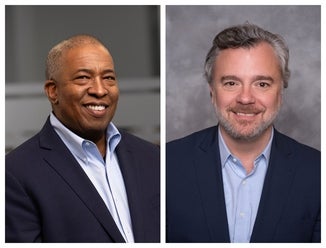As we mark the 60th anniversary of the Community Health Center movement, we find ourselves at a crossroads. The federal government, once a partner in progress, is now a source of uncertainty. Policy shifts, funding cuts, and bureaucratic in-fighting are not abstract challenges; they are real, immediate dangers to the health and dignity of our communities.

But this is not the moment to wring our hands in fear. This is the moment to roll up our sleeves.
The CHC movement was born not in comfort, but in crisis. In the heat of the Civil Rights Movement, in the Mississippi Delta and the housing projects of Boston, visionaries like Dr. Jack Geiger, Dr. Count Gibson, and Dr. John Hatch didn’t wait for permission. They responded. The founders of our movement recognized that health was not just about treating symptoms, it was about confronting the core drivers of these symptoms. They understood that healing required more than medicine. It required food, housing, dignity, and agency.
They didn’t just build clinics. They built a movement.
A movement started, not on behalf of the people, but with them. That’s the soul of Community Health Centers: majority-consumer boards, community governance, and a relentless focus on the causes of health disparities. It’s a model rooted in community, in coming together to create solutions that go beyond symptoms and address the core drivers of inequity. That legacy lives on in Worcester.
In 1970, the City of Worcester launched a Model Cities project to understand the health challenges facing downtown residents. After a year of working with 25 families, the message was clear: they wanted one doctor who could care for the whole family. That vision led to the founding of the Family Health and Social Services Center in 1972, now known as the Family Health Center of Worcester. Today the organization operates 14 sites, with over 400 employees, serving 30,000 patients in 90 languages each year.
That same year, seven women living in Worcester’s largest public housing complex came together with a shared goal: better access to health care for their families. Tired of relying on emergency rooms for basic needs, they founded what would become Edward M. Kennedy Community Health Center, originally known as the Great Brook Valley Health Center. With borrowed space from the Worcester Housing Authority and a single nurse practitioner, they began a journey that now serves more than 34,000 patients across Central and MetroWest Massachusetts.
This legacy is more than historical context; It can serve as a blueprint for what is possible when communities come together to face problems head-on.
Today that legacy is under threat. The so-called “Big Beautiful Bill” passed on Independence Day will be anything but beautiful for millions of Americans. It strips billions of dollars from Medicaid and SNAP, vital programs that help heal and feed our communities. This reconciliation package increases funding for enforcement and fear, while cutting support for care and compassion. These changes don’t just threaten our budgets, they threaten our neighbors. They erode the foundational promise that everyone, regardless of income or circumstance, deserves access to health and dignity.
Community health is built on the belief that the well-being of the whole depends on the strength of each individual part. An attack on our neighbors is an attack on all of us. For 53 years, Kennedy Community Health and FHCW have served as safety nets in the communities we call home. We have worked tirelessly to ensure that the most vulnerable among us can access the care and support they deserve, not just in times of crisis, but every day. Now, that mission is at risk.
Without adequate funding, our ability to provide care equitably and consistently is compromised, threatening not only the health of our patients but the financial sustainability of the entire community health system. These unprecedented challenges that we face today mirror those our movement’s founders faced back in 1965. We should look at their response to those crises as we get to work on solving the problems of today. We must commune. We must innovate. We must confront the chaos.
As Community Health Centers, we will need to strengthen our business models, diversify our revenue streams. We must invest in housing, in our vital workforce, in wrap-around services, because we know that health doesn’t start in the exam room. It starts in the home, in the neighborhood, in the systems that shape our lives.
We’ll need your help. There is no silver bullet to solve these challenges. We don’t have all the answers. Only through a comprehensive community response can we ensure the Community Health Center movement will thrive for another 60 years. We need you to bring your skills. Bring your ideas. Get civically engaged. Help build new solutions to these new problems
This is hard work. But we are capable of hard things.
We’ve weathered storms before. We’ve faced pandemics, recessions, and political shifts. And through it all, we’ve remained anchored in our mission: to serve, to heal, to empower. So, as we celebrate 60 years of community health, let us honor our past with action. Let us channel the spirit of Columbia Point and Mount Bayou. Let us remember that the cure for chaos is not control. It’s community.
And community is what we do best.
Lou Brady is the president and CEO of Family Health Center of Worcester, and Steve Kerrigan is the president and CEO of Edward M. Kennedy Community Health Center.
